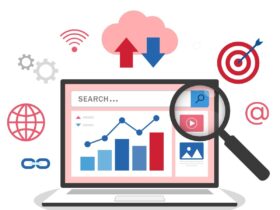Navigating the complex world of CFD trading can be both exhilarating and daunting, especially for those new to the market. One of the most powerful tools at a trader’s disposal is the Economic Calendar. This guide will help you understand its significance and how to use it effectively in your trading strategy.
The market is a living, breathing entity, constantly evolving and reacting to a myriad of factors. Among these, the economic calendar stands out as a crucial element that can influence market movements in profound ways. It’s more than just a list of events; it’s a roadmap to understanding the market’s heartbeat.
The Power of the Economic Calendar
The economic calendar is a compilation of significant economic events and data releases that are scheduled to occur. These can range from employment figures and interest rate decisions to GDP announcements and inflation reports. Each of these events carries the potential to cause market fluctuations, and being aware of them can give you a significant edge in your trading decisions.
Why It Matters to You
As a trader, you’re not just playing the market; you’re also playing the expectations game. The economic calendar helps you anticipate how upcoming events might sway market sentiment, allowing you to position your trades accordingly. It’s about being proactive rather than reactive.
Reading Between the Lines
Not all events carry the same weight. Some are more impactful than others, and it’s essential to discern which ones are likely to have a more considerable effect on your chosen markets. For instance, a central bank’s interest rate decision can send ripples through the forex market, while employment data can significantly influence the value of a country’s currency.
Timing is Everything
The timing of your trades is as critical as the trades themselves. The economic calendar can help you identify the best times to enter or exit a position. By doing so, you can maximize your profits and minimize your risks.
The Art of Interpretation
Interpreting the economic calendar is both a science and an art. It requires a deep understanding of how different data points can affect the market. It’s not just about the numbers; it’s about the narrative they tell. For example, a better-than-expected jobs report might initially boost a currency’s value, but if the underlying economic conditions are weak, the celebration might be short-lived.
Personalizing Your Calendar
One size does not fit all in trading. Personalize your economic calendar to focus on the events and data releases that are most relevant to your trading style and the markets you follow. This will help you streamline your analysis and make more informed decisions.
Staying Informed and Adapting
The market never sleeps, and neither should your economic calendar. Stay updated with the latest information and be ready to adapt your strategy as new data comes in. Flexibility is key in the ever-changing landscape of CFD trading.
Embracing the Emotional Side of Trading
Trading is not just about cold, hard numbers; it’s also about emotions. The economic calendar can help you manage your emotions by providing a structured approach to understanding market movements. It’s about having a plan and sticking to it, even when the market is volatile.
Conclusion
The economic calendar is your ally in the world of CFD trading. By understanding its role and leveraging it effectively, you can navigate the market with more confidence and make better-informed decisions. Remember, the market is not just a series of numbers on a screen; it’s a reflection of the collective human experience. Embrace the power of the economic calendar, and let it guide you on your trading journey.











